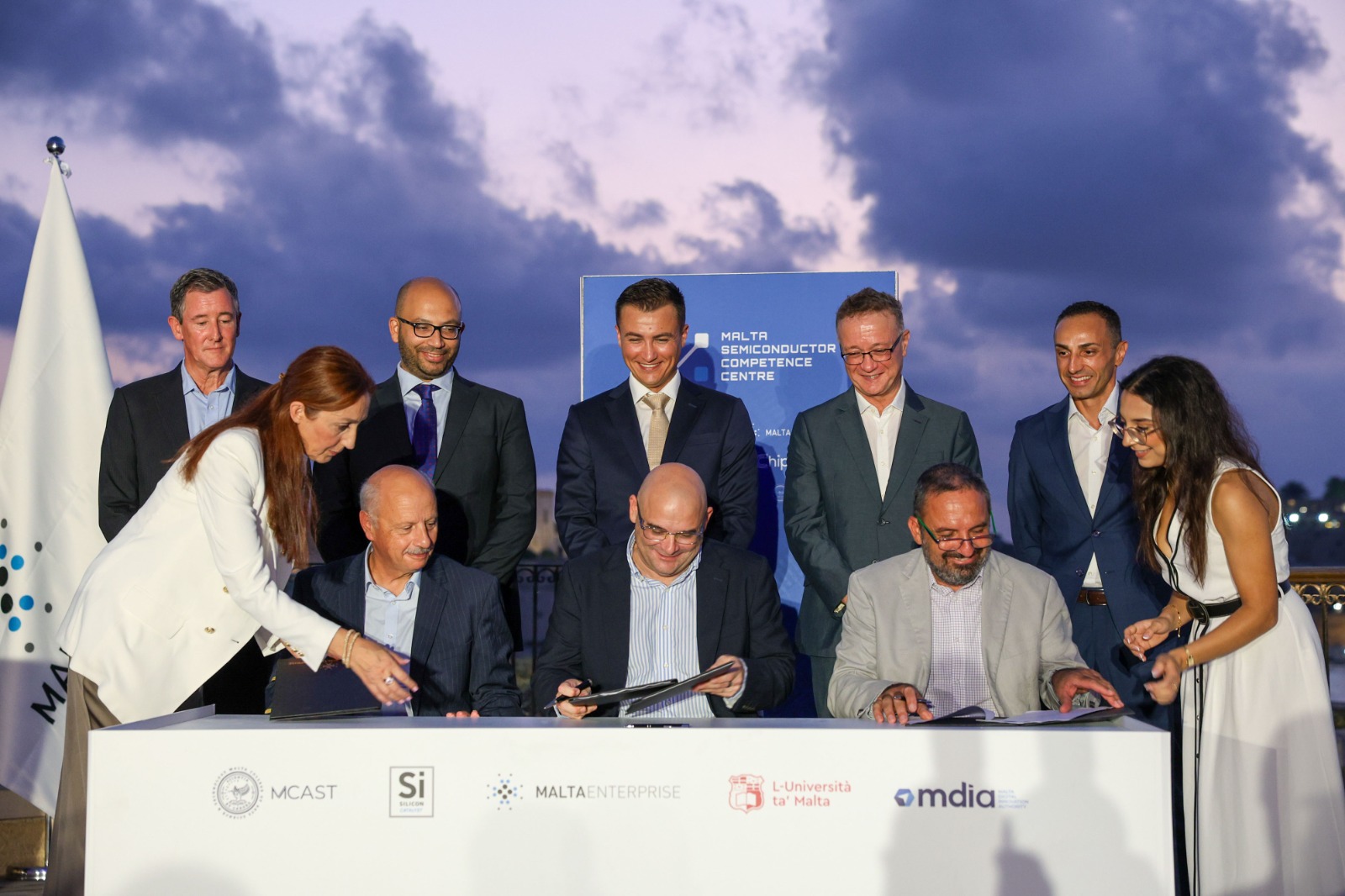Malta has officially unveiled the Malta Semiconductor Competence Centre (MSCC), described by the Government as “a major step forward” in bolstering the country’s role in Europe’s semiconductor sector.
The MSCC aims to prepare the workforce through targeted training programmes and micro-credential courses, industry-led learning, and research initiatives, aiming to train both current professionals and future talent to meet the evolving needs of the ever-growing global semiconductor industry.
It aims to do this by bringing together academia, research, and industry to create an ecosystem that supports innovation, develops skills, and creates new opportunities for start-ups.
This is a strategic initiative led by Malta Enterprise on behalf of the Ministry for Economy, Enterprise and Strategic Projects in collaboration with the University of Malta, MCAST, the Malta Digital Innovation Authority, and Silicon Catalyst EU Ltd.
Minister for Economy, Enterprise and Strategic Projects Silvio Schembri described the MSCC as, “placing Malta at the heart of Europe’s semiconductor ecosystem. It is not just a centre for technology, but a bridge connecting the talent, ideas, and ambition of our innovators with the wider European network. Through this collaboration, we are building competitiveness, attracting new opportunities, and ensuring that Maltese workers and businesses can continue to succeed in the digital age.”
Through its partnership with Silicon Catalyst EU, the MSCC has also launched the ChipStartEU programme to support start-ups in chip design.
More than 40 companies have already applied, with 12 to be selected for the first cohort. These start-ups will benefit from access to Silicon Catalyst’s global network, helping to turn new ideas into commercial success stories.
The MSCC will also play a vital role in supporting European semiconductor strategies, including the European Chips Act and IPCEI projects. Through alliances with leading organisations such as IMEC, ARM, and the European Network of Competence Centres, Malta is attracting international start-ups and scale-ups that will advance research, development, and innovation locally.
Malta is also pushing its place in the industry by hosting major industry events such as the Global Semiconductor Conference this November and the European Forum for Electronic Components and Systems 2025.
The launch of the Malta Semiconductor Competence Centre is more than an infrastructural investment; it represents a vision for the future. This vision aligns directly with Malta Vision2050, which emphasises sustainable growth, technological advancement, and a resilient economy powered by skilled human capital.
George Gregory, CEO of Malta Enterprise, concluded that “The Malta Semiconductor Competence Centre is a bold step forward for our nation. It is a catalyst for innovation, a platform for nurturing talent, and a gateway for international collaboration.
By bringing together research, industry, and entrepreneurship, we are ensuring Malta plays a meaningful role in Europe’s semiconductor future. This is just the beginning, and Malta Enterprise remains committed to driving this sector forward and creating opportunities that will benefit generations to come.”
PN slams Government’s reform consultation as ‘purely cosmetic’ and ‘pre-decided’
Last weekend a four-week consultation period came to an end, gathering over 1,500 responses from the public and multiple organisations
Malta’s Pre-Budget 2026 highlights tax stability, energy price protection and investment in key sectors
The Consultation Document paints a picture of resilience and cautious optimism
Malta remains top youth hotspot as under-25s are the largest tourist group in July
Inbound tourism for July 2025 reached 405,263, with youths leading the way






